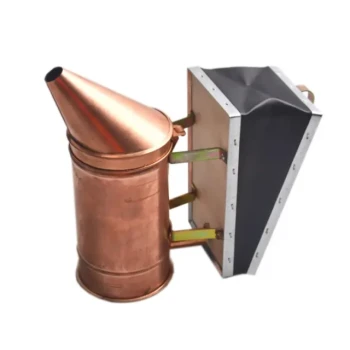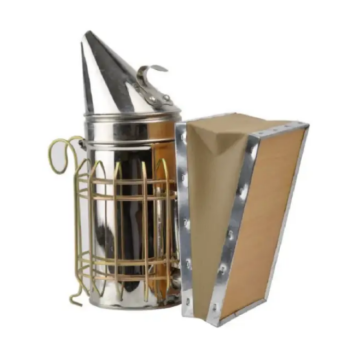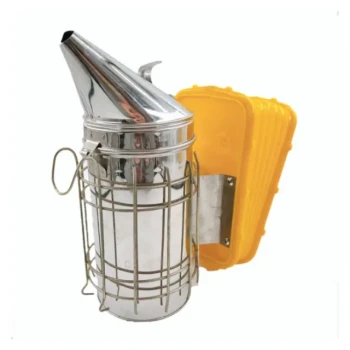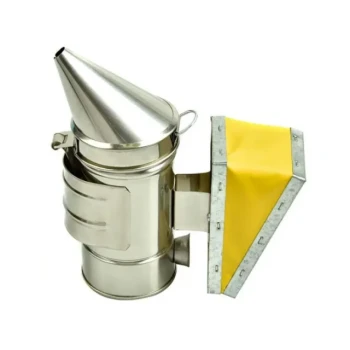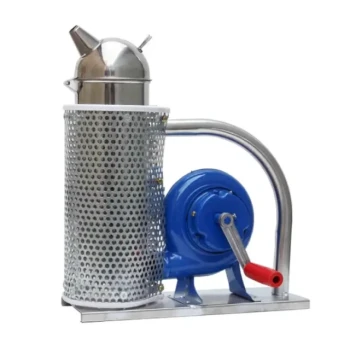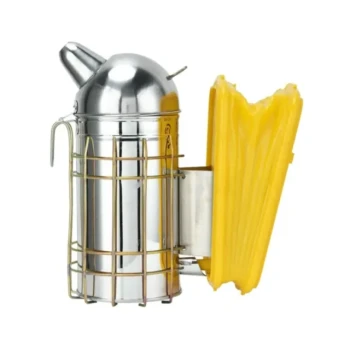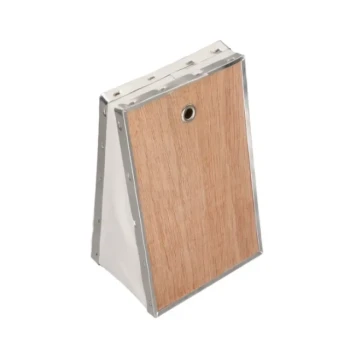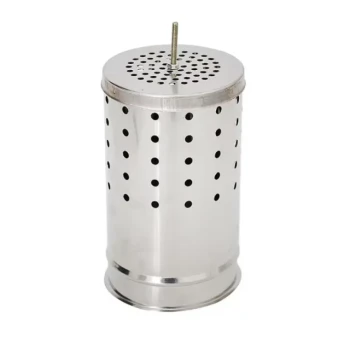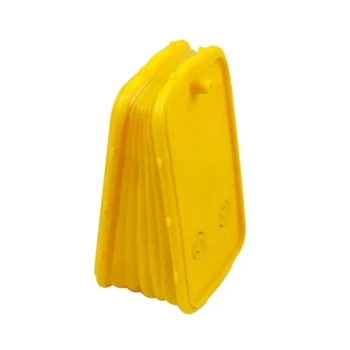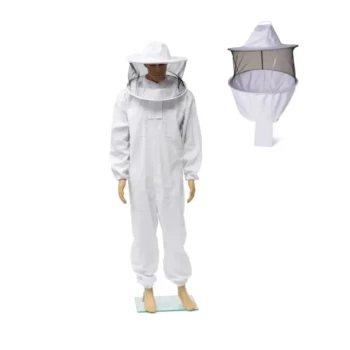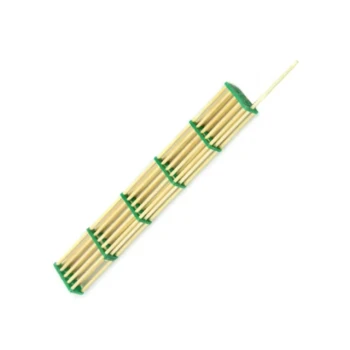For beekeepers, the best smoker fuels are natural, untreated, and dry materials that produce a thick, cool, white smoke. Common and effective choices include pine needles, wood shavings, or commercially available blends, which are often used in a layered approach to ensure the fire is easy to light and long-lasting.
The core principle is not finding a single "perfect" fuel, but rather understanding how to combine different materials to create a long-burning, cool smoke that effectively calms bees without harming them or contaminating the honey.
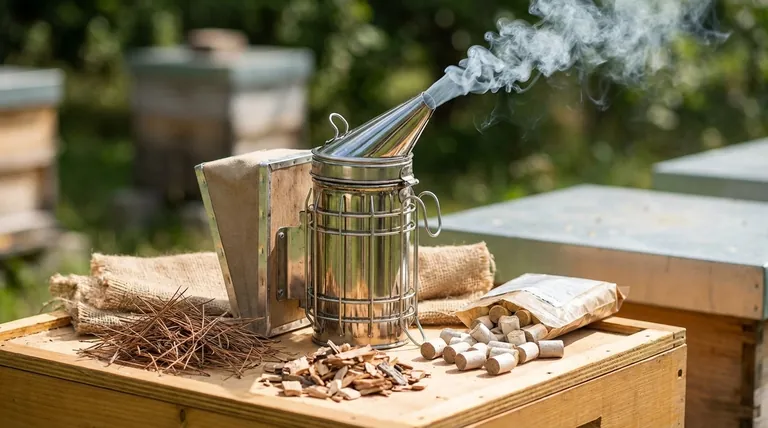
The Principles of Good Smoker Fuel
A well-managed smoker is one of a beekeeper's most important tools. The quality of the smoke is determined entirely by the fuel you choose and how you prepare it.
The Goal: Cool, White Smoke
The purpose of smoke is to mask the bees' alarm pheromones, which they release to signal danger. Thick, white, and cool smoke accomplishes this effectively, calming the colony and making inspections safer.
Conversely, hot, black, or acrid smoke acts as an irritant and can make the bees more aggressive.
Natural and Untreated is Non-Negotiable
The fuel you burn directly impacts the health of your bees and the purity of your honey. Never use materials treated with chemicals, paint, glue, or other synthetic additives.
These substances can release toxic fumes that are harmful to both the bees and the beekeeper, and they can contaminate the wax and honey within the hive.
Dryness is Essential
Your fuel must be completely dry. Damp materials do not smolder well; they produce a great deal of steam and creosote, which can irritate bees and cause your smoker to go out prematurely.
Properly dried fuel ignites easily and burns consistently, producing the ideal quality of smoke.
Building the Ideal Smoker Fire: A Layered Approach
The most effective method for preparing a smoker involves layering different types of fuel, each serving a specific purpose.
Layer 1: The Kindling (Ignition)
This is the starter fuel at the bottom of the smoker. It needs to ignite quickly and easily.
Excellent choices for kindling include dried pine needles or wood shavings (especially pine). Their high surface area allows them to catch a flame with minimal effort.
Layer 2: The Main Fuel (Longevity)
Once the kindling is lit and burning well, you add a denser, slower-burning fuel on top. This layer is the workhorse that will produce consistent smoke for the duration of your hive inspection.
Good options include wood chips, untreated burlap, denim scraps, or specialized commercial products like Chinese Herbal Blend Smoker Fuel.
Layer 3: The Topper (Cooling)
A final, small layer of green grass or fresh leaves can be placed on the very top of the fuel stack.
This optional layer doesn't burn but serves to cool the smoke as it exits the smoker's nozzle, ensuring it is gentle on the bees.
Common Pitfalls to Avoid
Choosing the wrong fuel can be ineffective at best and dangerous at worst. Always avoid burning certain materials in your smoker.
Chemically Treated Materials
Never use dryer lint (which contains synthetic fibers and chemical residues), cardboard with ink or glue, or any wood that has been painted, stained, or pressure-treated.
Plastics and Synthetic Fabrics
Burning plastics or synthetic fabrics like polyester releases highly toxic fumes that can kill your bees and are hazardous to your own health.
Wet or Green Fuel
Using "green" or damp wood as your main fuel source will not work. It will smolder poorly, produce irritating steam, and will likely extinguish itself before you finish your work.
Making the Right Choice for Your Apiary
Your choice of fuel will depend on your local resources, the number of hives you manage, and your personal preference.
- If your primary focus is cost and convenience: Use readily available, dried natural materials from your property, such as pine needles, decaying wood, or dry leaves.
- If your primary focus is a long, consistent burn for many hives: Create a layered fire with a quick-lighting base like wood shavings and top it with denser, longer-burning fuels like wood chips.
- If your primary focus is consistency and ease of use: Purchase a commercially prepared smoker fuel specifically formulated to be safe, gentle, and long-burning.
Ultimately, the best fuel is one that is dry, natural, and allows you to confidently manage your hives with calm and control.
Summary Table:
| Fuel Type | Purpose | Key Characteristics | Examples |
|---|---|---|---|
| Kindling | Quick Ignition | High surface area, easy to light | Dried pine needles, wood shavings |
| Main Fuel | Long, Consistent Burn | Dense, slow-burning material | Wood chips, untreated burlap, commercial blends |
| Topper (Optional) | Smoke Cooling | Green material that doesn't burn | Fresh grass, leaves |
| Avoid | - | Treated, synthetic, or damp materials | Plastics, painted wood, wet fuel |
Equip your apiary with reliable, high-quality beekeeping supplies from HONESTBEE.
As a trusted wholesale supplier for commercial apiaries and distributors, we understand that your success depends on using safe, effective equipment. The right smoker fuel is just the beginning. Let us provide you with the durable tools and supplies you need for efficient, large-scale beekeeping operations.
Contact HONESTBEE today to discuss your wholesale needs and discover how our products can support the health of your bees and the productivity of your business.
Visual Guide
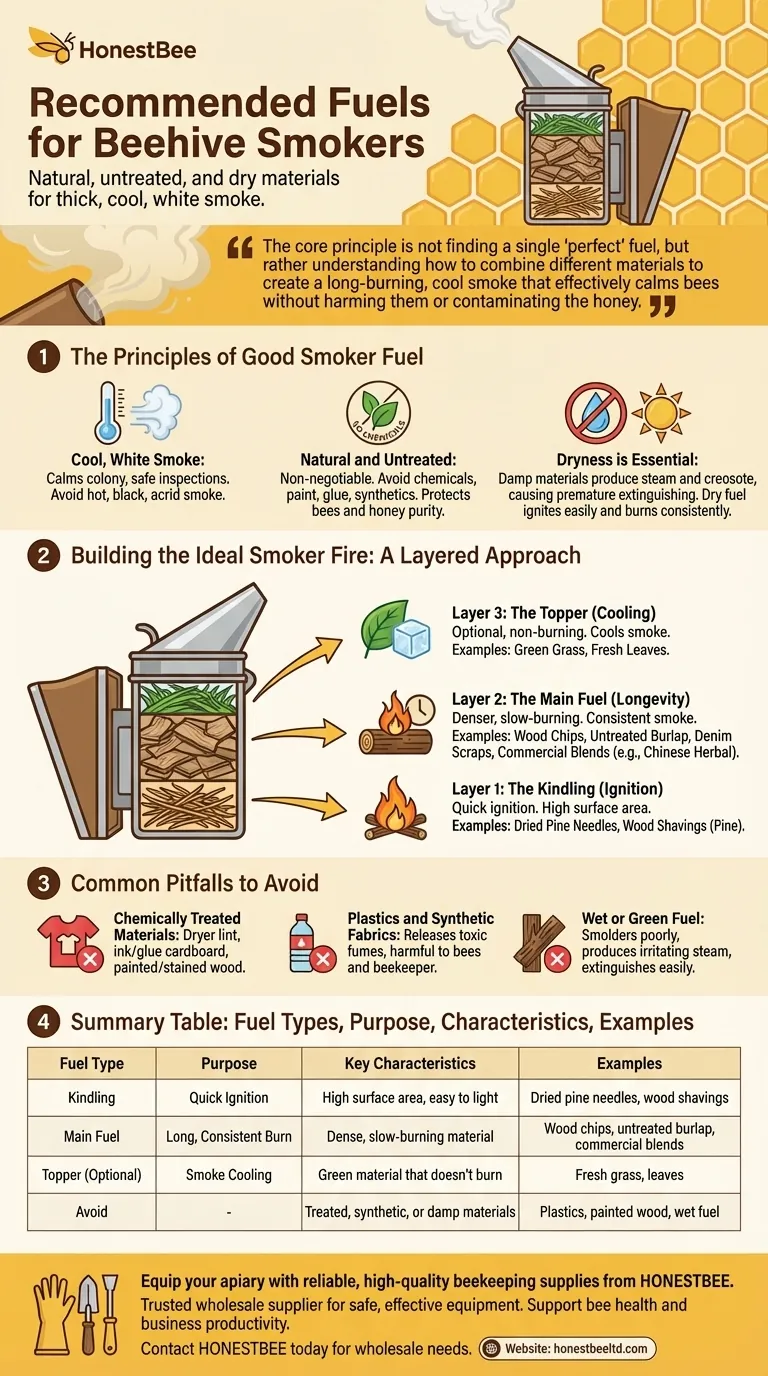
Related Products
- 54-Piece Smoker Fuel Pellets for Beekeeping Beehive Smoker Fuel
- Premium Traditional Copper Bee Smoker with Bellows
- Stainless Steel Honey Bee Smoker Hive and Honeycomb Smoker for Beekeeping
- European Stainless Steel Bee Smoker for Honey Bee Hive
- Economy Galvanized Beekeeping Honey Bee Smoker for Wholesale
People Also Ask
- What is the proper procedure for lighting a bee smoker? Master the Art of Cool Smoke for Calmer Hives
- What are some alternatives to using smoke in beekeeping? A Guide to Gentle Hive Management
- How do hive tools and smokers function in SHB monitoring? Professional Beekeeping Techniques for Beetle Control
- How does a smoker help during hive inspections? The Key to Calm, Safe Beekeeping
- Why is the use of bee smokers strictly controlled during the evaluation of defensive behavior? Ensuring Data Integrity
- What is a bee smoker? The Essential Guide to Calm Hives and Safe Apiary Management
- What defines quality smoke for beekeeping? Essential Tips for Safe and Cool Smoker Operation
- What are the consequences of neglecting to use protective gear or a smoker? Ensure Safe Bee Installation

